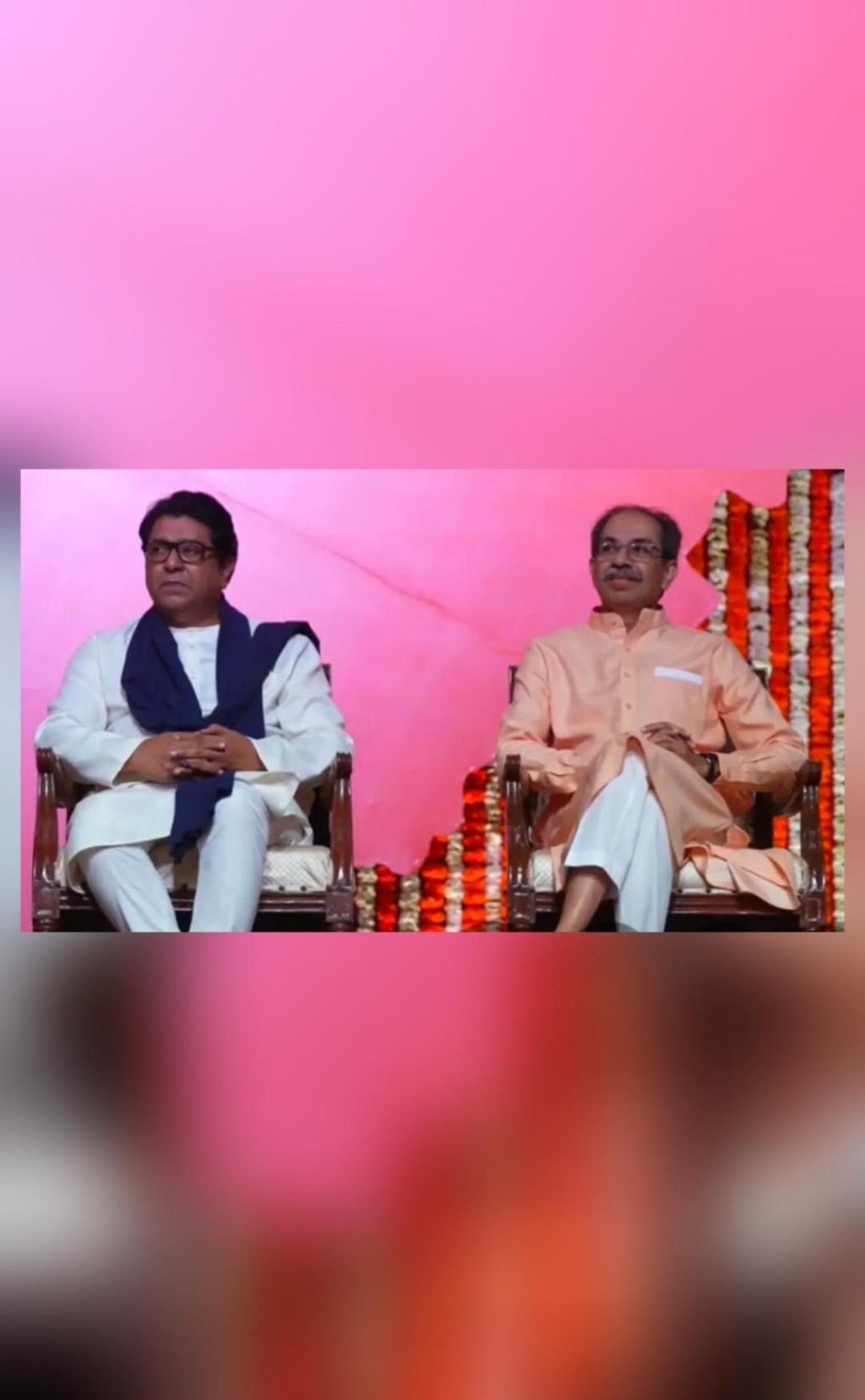
Neither Hindi nor Marathi, Uddhav & Raj just love family: BJP
In a recent development, Shiv Sena (UBT) chief Uddhav Thackeray and MNS president Raj Thackeray joined hands to celebrate the Maharashtra government’s rollback of the three-language policy. The unusual alliance was met with strong reactions from various quarters, with the BJP being one of the most vocal critics. Gaurav Vallabh, a BJP leader, was quoted as saying that the two Thackerays came together due to “political compulsion” and not out of any genuine love for the respective languages.
According to Vallabh, the duo’s love for their family is all that matters, and they have no qualms about using the languages to further their political interests. This comment has sparked a heated debate, with many questioning the motives behind the BJP’s outburst.
The three-language policy, introduced by the Maharashtra government, aimed to promote the teaching of Hindi, Marathi, and English in schools. The policy was met with opposition from various quarters, including the Shiv Sena (UBT) and the MNS, which claimed that it would lead to the erosion of Marathi culture and identity.
The joint rally held by Uddhav and Raj to celebrate the rollback of the policy was seen as a significant development, with many interpreting it as a sign of a potential alliance between the two parties. The BJP, however, has dismissed this notion, stating that the rally was a result of “Political compulsion” and not a genuine expression of love for the languages.
Gaurav Vallabh’s comment about the Thackerays being more interested in their family than in the languages has also been met with criticism from many quarters. While some have praised Vallabh for speaking the truth, others have accused him of being divisive and trying to create communal tensions.
The debate surrounding the three-language policy and the Thackerays’ joint rally has brought to the forefront the complex issue of language and identity in Maharashtra. While some argue that the policy is an attempt to promote linguistic and cultural diversity, others see it as an attempt to impose Hindi on the state.
The Shiv Sena (UBT) and the MNS have been vocal critics of the policy, claiming that it would lead to the erosion of Marathi culture and identity. They have also accused the government of trying to impose Hindi on the state, which has been met with resistance from various quarters.
The BJP, on the other hand, has been supportive of the policy, claiming that it is an attempt to promote linguistic and cultural diversity in the state. However, the party has also been accused of trying to use the policy to further its own political interests.
The Thackerays’ joint rally has also brought to the forefront the issue of family politics in Maharashtra. The Thackeray family has a long history of politics in the state, with Bal Thackeray being the founder of the Shiv Sena. Uddhav and Raj have followed in their father’s footsteps, with Uddhav being the leader of the Shiv Sena (UBT) and Raj being the president of the MNS.
The family politics in Maharashtra is complex and multifaceted, with many parties and leaders having a stake in the state’s political landscape. The Thackerays’ joint rally has added another layer of complexity to the already complex political scenario in the state.
In conclusion, the three-language policy and the Thackerays’ joint rally have brought to the forefront the complex issue of language and identity in Maharashtra. While some argue that the policy is an attempt to promote linguistic and cultural diversity, others see it as an attempt to impose Hindi on the state. The Thackerays’ joint rally has also added another layer of complexity to the already complex political scenario in the state.
As the debate continues, it is clear that the issue is far from being resolved. The BJP’s comment about the Thackerays being more interested in their family than in the languages has sparked a heated debate, with many questioning the motives behind the party’s outburst. The Thackerays’ joint rally has also brought to the forefront the issue of family politics in Maharashtra, which is a complex and multifaceted issue.
As the situation unfolds, it is clear that the three-language policy and the Thackerays’ joint rally are just the tip of the iceberg. The issue of language and identity in Maharashtra is complex and multifaceted, and it is likely to continue to dominate the state’s political landscape for a long time to come.






